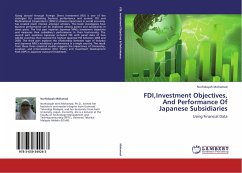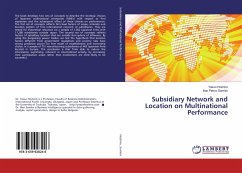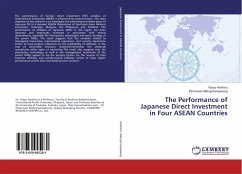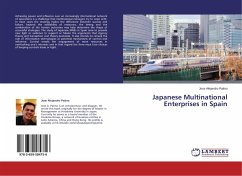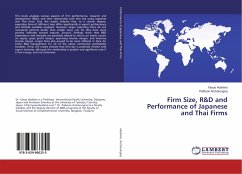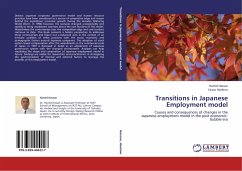Going abroad through Foreign Direct Investment (FDI) is one of the strategies for sustaining business performance and survival. FDI and Multinational Corporation s (MNCs) obvious importance in world economy, has created much interest amongst scholars. This book investigates how business performance can be improved among parent and subsidiaries in three parts. The first part explores Japanese MNCs investment objectives and measures their subsidiary s performance in their host-county. The second part examines Japanese outward FDI with panel data of two ASEAN countries that received the highest Japanese FDI between 2003 and 2009. The third part explores the relationship between type of industry and Japanese MNCs subsidiary s performance in a single country. The result from these three empirical studies suggests the importance of Ownership, Location, and Internalization (OLI) theory and Investment Development Path (IDP) in Japanese outward investment.

